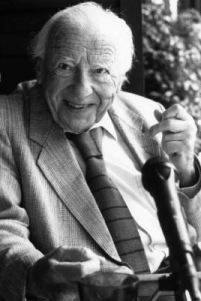ROMA!

Sitting in St. Peter's Square on a beautiful sunny day listening to the Holy Father give a catechesis on Tertullian and then his papal blessing - is there a better way to spend a birthday? I think not. This was my first (and hopefully not the only) visit to Rome and the Vatican and it was fantastic. Instead of describing it in detail I wanted to share a few pictures and some thoughts from the trip as well as a quote from Benedict himself, another one which was very important in my journey to Roman Catholicism. I was there with a few close friends for only a few days but being around buildings that are from the first century (and before) made even England's heritage seem young. The Colosseum and Pantheon were exceptional, as were all the old Roman ruins where Western civilization was being cemented and fully developed.

Another great moment was going through the Vatican Museum with some of the most impressive art work in the world. The Sistine Chapel was incredible; seeing it is the only way of experiencing the genius of Michaelangelo. But along the way to the Sistine Chapel there were numerous works which were brilliant in their own right. Two of them stood in juxtaposition for me in describing Catholicism's approach to reason.
First is Raphael's School of Athens:

This painting shows the two philosophical masters, Plato and Aristotle, in the center. Note Plato pointing to the heavens (world of Ideas) whereas Aristotle points to the earth (world of Forms). These two philosophers (as well as others in the painting) would provide the bedrock for St. Augustine and St. Thomas Aquinas and the Church Fathers to develop the Christian Tradition in tune with the divine reason as well as divine revelation.
The second painting that struck me alongside this was one I don't know the name of (any help?) which signaled the supremacy of the Cross and Christ against idols of this world:

This reminded me of how Catholicism seeks to develop the best in natural and supernatural reason given to man but also fights and overcomes mere traditions and idols of this world. The dual focus and tension (as opposed to reason only of liberal Christianity and revelation only of evangelical Christianity) reminds me of the truth and power of Catholicism: affirming what is good in man and rejecting what is false for the sake of Christ.
One of the most moving moments was the experience of being meters from St. Peter's remains under the altar in St. Peter's.

I can't describe the feelings that were running through me as I looked on the remains of that great disciple, leader of the Twelve. We read and think so much about him in Scriptures and theological writings, but to be near his body was incredible; a reminder of the rootedness of Catholicism in the physical as well as spiritual realities of this world.
Finally, it goes without saying that the high point of the trip was the general audience with Pope Benedict XVI. We were able to get great seats and so ended up ten feet from him while he drove around greeting the people in St. Peter's Square. The experience of being so close to him was amazing and I will always remember it, especially since I got an incredible picture!

To end, I thought I would include the final words of Benedict's homily for his Inauguration of his Pontificate on April 24th, 2005. Whenever I am afraid or worried that Christ's calling is a negation of life this message reminds me of great Yes (or should I say Ja!) which overcomes any No (Nein!) of this world. I hope it brings you the same peace and courage as it does me.
'At this point, my mind goes back to 22 October 1978, when Pope John Paul II began his ministry here in Saint Peter’s Square. His words on that occasion constantly echo in my ears: “Do not be afraid! Open wide the doors for Christ!” The Pope was addressing the mighty, the powerful of this world, who feared that Christ might take away something of their power if they were to let him in, if they were to allow the faith to be free. Yes, he would certainly have taken something away from them: the dominion of corruption, the manipulation of law and the freedom to do as they pleased. But he would not have taken away anything that pertains to human freedom or dignity, or to the building of a just society. The Pope was also speaking to everyone, especially the young. Are we not perhaps all afraid in some way? If we let Christ enter fully into our lives, if we open ourselves totally to him, are we not afraid that He might take something away from us? Are we not perhaps afraid to give up something significant, something unique, something that makes life so beautiful? Do we not then risk ending up diminished and deprived of our freedom? And once again the Pope said: No! If we let Christ into our lives, we lose nothing, nothing, absolutely nothing of what makes life free, beautiful and great. No! Only in this friendship are the doors of life opened wide. Only in this friendship is the great potential of human existence truly revealed. Only in this friendship do we experience beauty and liberation. And so, today, with great strength and great conviction, on the basis of long personal experience of life, I say to you, dear young people: Do not be afraid of Christ! He takes nothing away, and he gives you everything. When we give ourselves to him, we receive a hundredfold in return. Yes, open, open wide the doors to Christ – and you will find true life. Amen.'

